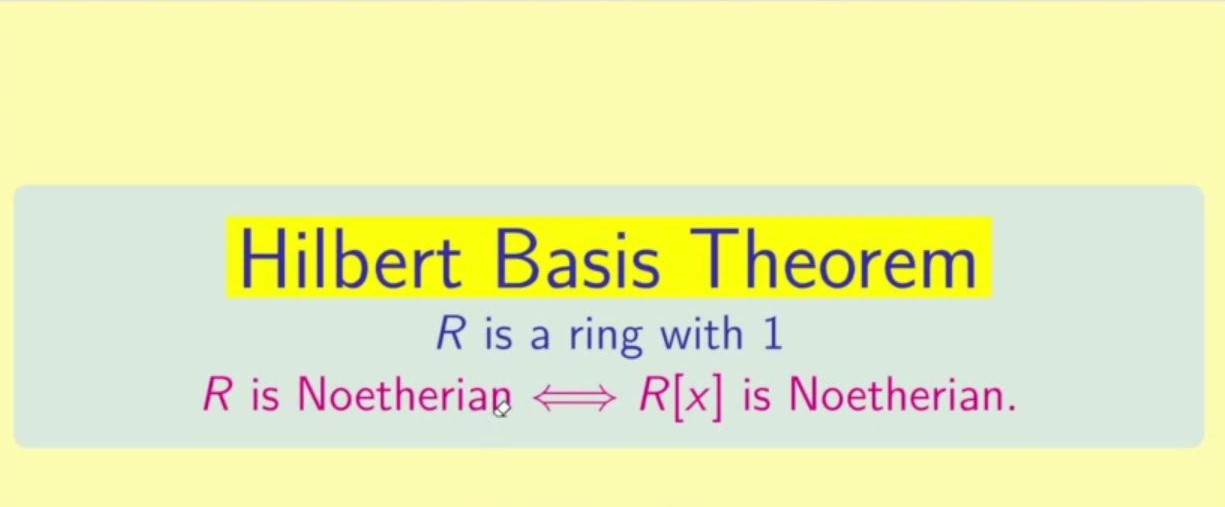
Hilbert's Basis Theorem is a fundamental concept in mathematical sciences, with far-reaching implications across various fields. Understanding this theorem is crucial for comprehending the structure and properties of mathematical systems. In this article, we will delve into seven essential facts about Hilbert's Basis Theorem, shedding light on its significance and applications. From its historical origins to its practical implications in modern mathematics, we will explore the theorem's relevance and impact. Whether you're a mathematics enthusiast, a student, or a professional in a related field, gaining insights into Hilbert's Basis Theorem can deepen your understanding of foundational mathematical principles. So, let's embark on a journey to unravel the intricacies of this theorem and discover its profound implications in the realm of mathematical sciences.
Key Takeaways:
- Hilbert’s Basis Theorem, formulated by David Hilbert in 1888, is crucial in algebraic geometry and modern algebra. It helps find finite bases for certain ideals, impacting mathematics and theoretical computer science.
- This theorem’s connections to Noetherian rings and Hilbert’s Nullstellensatz make it a cornerstone in algebra and geometry, inspiring further research and developments across diverse mathematical landscapes.
It was formulated by David Hilbert in 1888.
David Hilbert, a renowned German mathematician, introduced the theorem in This theorem has since become a cornerstone in the study of algebraic geometry and commutative algebra, influencing various branches of mathematics.
The theorem addresses the existence of a finite basis for certain ideals.
Hilbert's Basis Theorem deals with the existence of a finite generating set, or basis, for certain types of ideals in polynomial rings. This concept has profound implications in algebraic geometry and has applications in diverse areas of mathematics and theoretical computer science.
It plays a crucial role in the development of modern algebraic geometry.
The theorem's significance extends to modern algebraic geometry, where it provides a powerful tool for understanding the structure of algebraic varieties and their associated ideals. This has paved the way for groundbreaking advancements in the field.
The theorem is closely linked to Noetherian rings.
Hilbert's Basis Theorem is intimately connected to the concept of Noetherian rings, which are commutative rings with a property that aligns with the theorem's conditions. This connection underscores the theorem's relevance in the study of ring theory and abstract algebra.
It has applications in theoretical computer science.
The theorem's implications extend beyond pure mathematics and find applications in theoretical computer science, particularly in the analysis of algorithms and computational complexity. Its role in this interdisciplinary context underscores its far-reaching impact.
The theorem has connections to Hilbert's Nullstellensatz.
Hilbert's Basis Theorem is intricately linked to Hilbert's Nullstellensatz, a fundamental result in algebraic geometry that establishes a correspondence between algebraic sets and radical ideals. This connection underscores its significance in the broader landscape of algebraic geometry.
The theorem has inspired further research and developments.
Since its inception, Hilbert's Basis Theorem has sparked extensive research, leading to new insights and developments in algebra, geometry, and related fields. Its enduring influence continues to shape the trajectory of mathematical inquiry and innovation.
Understanding the intricacies and implications of Hilbert's Basis Theorem is essential for delving into the rich tapestry of algebraic geometry, commutative algebra, and their interdisciplinary applications. This foundational theorem, formulated by David Hilbert over a century ago, continues to resonate across diverse mathematical landscapes, serving as a testament to the enduring impact of mathematical theory.
Conclusion
In conclusion, Hilbert's Basis Theorem is a fundamental result in the realm of mathematical logic and algebra. It provides a powerful tool for understanding the structure of polynomial rings and the existence of certain types of sets within them. The theorem's implications extend to various branches of mathematics, making it a cornerstone of mathematical reasoning and proof. Understanding the significance and applications of Hilbert's Basis Theorem can greatly enhance one's comprehension of abstract algebra and its real-world applications.
FAQs
What is the significance of Hilbert's Basis Theorem?Hilbert's Basis Theorem holds significant importance in the realm of abstract algebra and mathematical logic. It provides a fundamental understanding of the structure of polynomial rings and the existence of certain types of sets within them, offering valuable insights into various mathematical concepts and applications.
How does Hilbert's Basis Theorem impact other areas of mathematics?Hilbert's Basis Theorem has far-reaching implications across different branches of mathematics. It plays a crucial role in fields such as algebraic geometry, commutative algebra, and mathematical logic, providing essential tools for reasoning and proving the existence of certain mathematical structures.
Was this page helpful?
Our commitment to delivering trustworthy and engaging content is at the heart of what we do. Each fact on our site is contributed by real users like you, bringing a wealth of diverse insights and information. To ensure the highest standards of accuracy and reliability, our dedicated editors meticulously review each submission. This process guarantees that the facts we share are not only fascinating but also credible. Trust in our commitment to quality and authenticity as you explore and learn with us.
